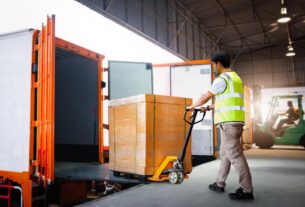Every time you ship goods from one country to another, you must obtain customs clearance before your freight can leave the port of origin and before it can enter the destination country. Getting this clearance can a complex process because of the many pitfalls involved. But, you can avoid any delays and unnecessary costs if you consider Clearit customs clearance services. When preparing for customs clearance, here are things you must do:
Choose a Customs Broker
A customs broker is a logistics expert who facilitates the customs clearance process and makes sure your shipment meets all related standards, laws, and regulations. Your broker can create the customs entry and assist with all documentation, taxes, duties, and payments.
If you are working with a freight forwarder and you prefer to engage a third-party customs broker, the former will hand over the documents to your broker to do the clearance. But, if the broker causes any delays after failing to clear customs on time, your freight forwarder will not be liable for any extra costs you might incur.
Be Aware of Export and Import Restrictions
Before you ship your goods, you must make sure your freight is allowed to be exported from the country of origin and permitted to enter the destination. Some goods are prohibited from export or import in different countries. That is why you need to check which goods are banned before you book your shipment. Keep in mind that exporting or importing prohibited goods without the relevant written permission or licence, can have your cargo seized and you facing penalties. Restrictions imposed on the export and import of goods include age restrictions, packaging restrictions, quantity restrictions, and licencing restrictions.
Ensure You Comply with Trade Agreements
Trade agreements impact international trade and determine the tariffs and duties imposed by countries on imports and exports. While trade agreements such as a free trade agreement can benefit your business, it can also restrict your opportunities. Other trade agreements you must comply with include anti-dumping duties, and countervailing duties. Check with your broker if any countervailing duties will apply to your goods when they arrive in the country of import.
Prepare All Required Documents
Your customs broker will require documents to start the clearance process. These include a commercial invoice, packing list, certificate of origin, Letter of Credit, and Airway Bill for air shipping and Bill of Lading for ocean shipping. In some instances, your broker may also need documents such as permits, licences, or certificates are required to complete the process.




